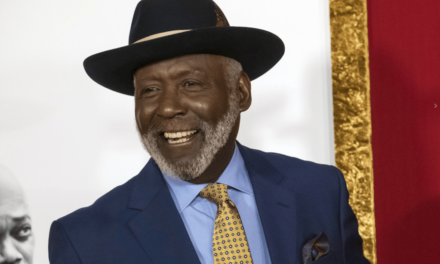By Megan Sayles,
AFRO Business Writer,
Report for America Corps Member.
msayles@afro.com
When it comes to New Year’s resolutions, many people often include eating healthier and getting in shape on their list. While the intent to take better care may be there, it’s not always easy to adopt a new diet or workout routine and stick with it. But what better time to make a change than the new year?
African Americans in particular should be mindful of such considerations as they face unique health challenges. According to the Centers for Disease Control and Prevention (CDC), African Americans between the ages of 18 and 49 are two times more likely to die from heart disease than White Americans.
Those aged 35 to 64 are also 50 percent more likely to have high blood pressure than their counterparts.
These troubling health impairments make it imperative for the Black community to examine their lifestyles and diets. Kimberly Coby is one such person motivated to respond.
A board-certified functional nutrition counselor and health coach, Coby opened Affirm Wellness LLC in 2020 to provide a personalized approach to nutrition that allows people to optimize health.
She created the company after witnessing her father make drastic changes to his diet while undergoing chemotherapy and radiation to treat lung cancer. The only symptom he experienced during the taxing treatments was fatigue — not nausea or loss of appetite.
The therapies, however, took a toll on him, leading to a heart attack while he was in remission. He spent a month in the hospital, and one day he went into cardiac arrest. Coby began to pray, and she promised to dedicate herself to health education if he survived.
“I said, ‘God, if you just give me one more day with my daddy, I will tell the world how to take care of their bodies naturally, the way that he did.’ And he did,” Coby said.
The most critical change a person can make to their diet is avoiding processed foods, according to Coby. Rather, they should prioritize eating whole foods that are free from additives, like fruits, vegetables, whole grains, legumes, nuts and seeds.
Cutting out sugar, which has been found to be addictive by various studies, is also beneficial to the body. However, Coby said swapping it out for artificial sweeteners, like aspartame and sucralose, that are typically used in sugar-free foods and drinks, can be just as harmful to health.
Instead, she suggested using honey, agave and maple syrup for sweetening. If you’re a self-professed sweet-tooth, Coby recommended adding bananas to fruit smoothies for a creamy, thick texture much like ice cream, combining fresh fruit with oatmeal to make dessert tarts and making fruit popsicles.

Coby explained how the gastrointestinal (GI) system is connected to the brain, and sugar, gluten and dairy can break down the barrier between the brain and gut, allowing bacteria to escape from the GI tract and travel to the brain.
This causes inflammation, Coby noted, and can lead to people experiencing autoimmune diseases, depression, anxiety and brain fog. But, taking probiotics daily and eating fermented foods such as sauerkraut and kimchi, can improve your gut health.
“You have to learn how to listen to your body. Your body talks to you, and it will tell you what food works for it and what food works against it,” Coby said. “It tells you through a number of different ways… by getting stiff, by showing brain fog, by getting constipated, by getting acne and even by getting some diseases.”
Coby suggested that people seek advice from nutrition counselors when deciding what type of diet to adopt. If they can’t connect with one, there’s a wealth of information available on functional nutrition online, and they can alternatively follow prominent doctors in the space.
Once you’ve decided on a diet, meal prepping can be the best way to maintain it. It’s especially important to put together healthy snacks, like veggies or homemade granola bars, you can take with you on the go, so you don’t end up relying on fast-food options, according to Coby.
When starting a new diet, Coby said, it’s also crucial to prepare your mind for the lifestyle change. People should have a sense of why they are implementing changes to their diet and what they would like to achieve from it, she said.
For exercise, Coby recommended newcomers start off slow. They can try walking and yoga, and if they choose to amp up their workouts, they must consider if the exercises are sustainable over the long term.
However, diet is still the largest determinant of a person’s physical health, according to Coby.
“Whole food, natural food, organic food is delicious. Spices and herbs have no calories, and they taste great,” Coby said. “You just have to play around with different varieties to see what you like.”
Help us Continue to tell OUR Story and join the AFRO family as a member –subscribers are now members! Join here!
The post You are what you eat: forging a healthy lifestyle for the new year appeared first on AFRO American Newspapers .











